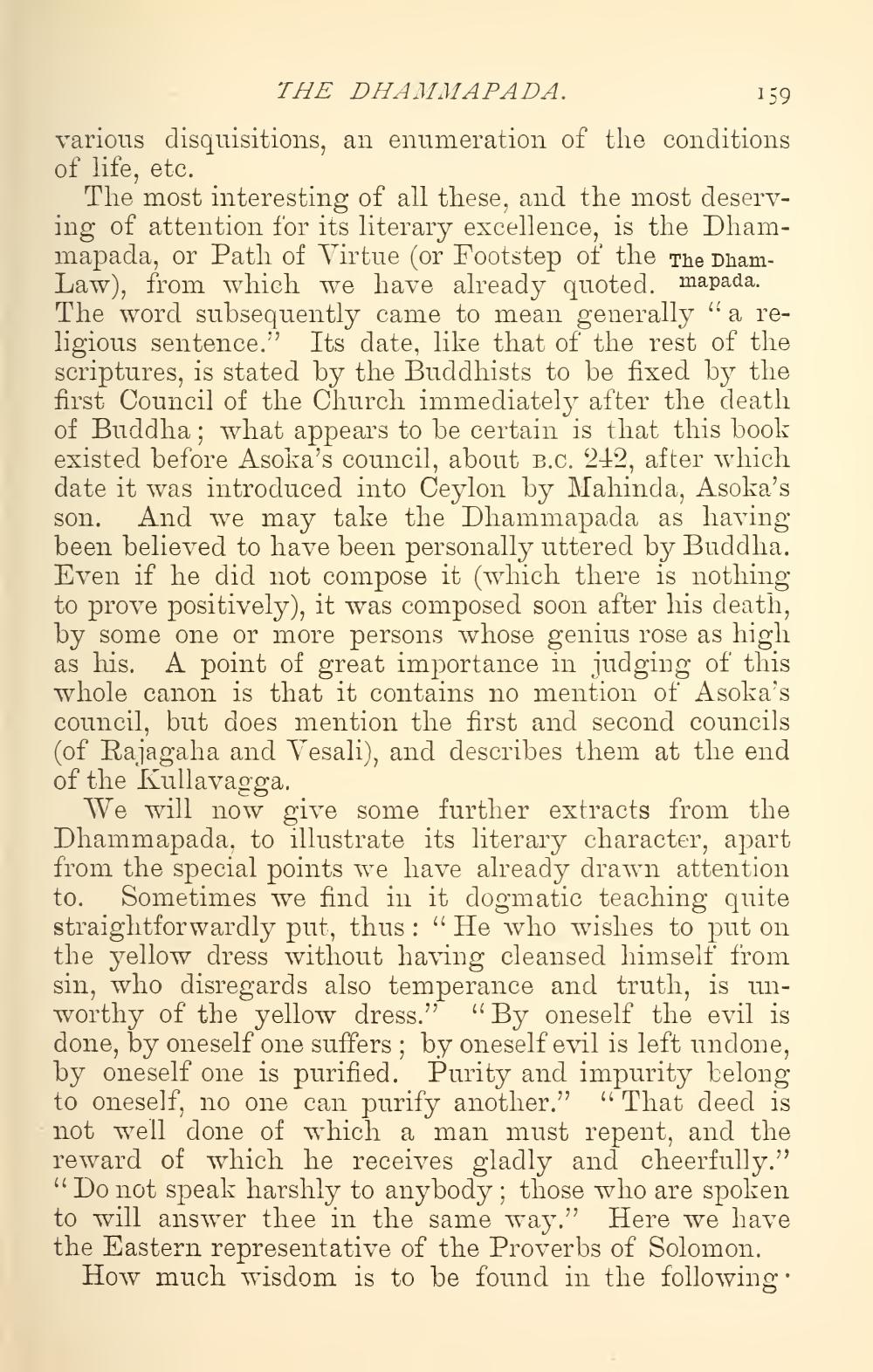________________
THE DHAMMAPADA.
159 various disquisitions, an enumeration of the conditions of life, etc.
The most interesting of all these, and the most deserving of attention for its literary excellence, is the Dhammapada, or Path of Virtue (or Footstep of the The DhamLaw), from which we have already quoted. mapada. The word subsequently came to mean generally “a religious sentence." Its date, like that of the rest of the scriptures, is stated by the Buddhists to be fixed by the first Council of the Church immediately after the death of Buddha; what appears to be certain is that this book existed before Asoka's council, about B.C. 242, after which date it was introduced into Ceylon by Mahinda, Asoka's son. And we may take the Dhammapada as having been believed to have been personally uttered by Buddha. Even if he did not compose it (which there is nothing to prove positively), it was composed soon after his death, by some one or more persons whose genius rose as high as his. A point of great importance in judging of this whole canon is that it contains no mention of Asoka's council, but does mention the first and second councils (of Rajagaha and Vesali), and describes them at the end of the Kullavagga.
We will now give some further extracts from the Dhammapada, to illustrate its literary character, apart from the special points we have already drawn attention to. Sometimes we find in it dogmatic teaching quite straightforwardly put, thus: “He who wishes to put on the yellow dress without having cleansed himself from sin, who disregards also temperance and truth, is unworthy of the yellow dress." "By oneself the evil is done, by oneself one suffers ; by oneself evil is left undone, by oneself one is purified. Purity and impurity belong to oneself, no one can purify another." "That deed is not well done of which a man must repent, and the reward of which he receives gladly and cheerfully.” "Do not speak harshly to anybody; those who are spoken to will answer thee in the same way." Here we have the Eastern representative of the Proverbs of Solomon.
How much wisdom is to be found in the following:




